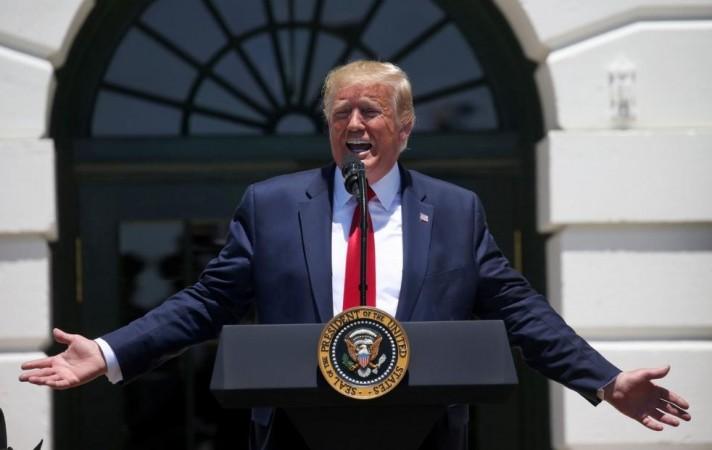
The 1987 Intermediate-Range Nuclear Forces (INF) treaty between the United States and Russia will officially lapse on Friday, prompting concerns about regional security. The treaty, signed by then US President Ronald Reagan and Soviet leader Mikhail Gorbachev, was withdrawn by President Donald Trump's administration in February alleging Moscow violated the terms. NATO also supported the US position.
The six-month withdrawal process was initiated after Russia's Novator 9M729 cruise missile violated the treaty, which bans all land-based missiles with a range of between 500 and 5,500 kilometres to be stationed in Europe.
"I think the INF Treaty has served us well, but it only works if both parties comply," the newly appointed US Defense Secretary Mark Esper said recently, reported AFP.
"The United States will remain in compliance with all of our obligations until August 2nd -- and after that point in time, we will continue to pursue what is in our best interest," he added.
Russia has denied the claims and insisted that the country had followed the treaty's norms. Moscow showed foreign military attaches from the United States, Britain, France and Germany the controversial missile in January and said that it has a maximum range of 480 kilometres which comes under the INF limits.
Russian President Vladimir Putin passed a law on July 3, suspending Moscow's participation in the treaty. While the US has said that it will not deploy new nuclear-armed missiles in Europe, it hasn't made any pledge not to deploy conventional weapons.
A Senate legislation was introduced on Wednesday, reported The Guardian, urging the Trump administration to extend the remaining arms treaty with Russia, the New Start treaty, that is set to expire on 2021.
The treaty signed by former President Brack Obama limits the number of deployed strategic nuclear warheads to 1,550 by both US and Russia.
Arms race
The withdrawal from the treaty will allow both countries to develop their military assets especially in comparison to Chinese military capabilities. The bilateral treaty between the US and Russia was said to have slowed down US weapons development, especially in intermediate-range nuclear missiles, something that China was able to develop over the years.
"Most of China's inventory is of intermediate-range missiles and so we need to make sure we have the capability as well to respond should we -- God forbid -- get in a fight with them one day," Esper said, reported the international news agency.
Trump has said that he willing to consider a new arms control agreement but it has to include China. "I think we are going to end up making a deal with Russia where we have some kind of arms control because all we are doing is adding on to what we don't need and they are too. And China is trying to catch us both," Trump told American TV network C-Span on Tuesday.
China has said it has no interest in such a deal.








